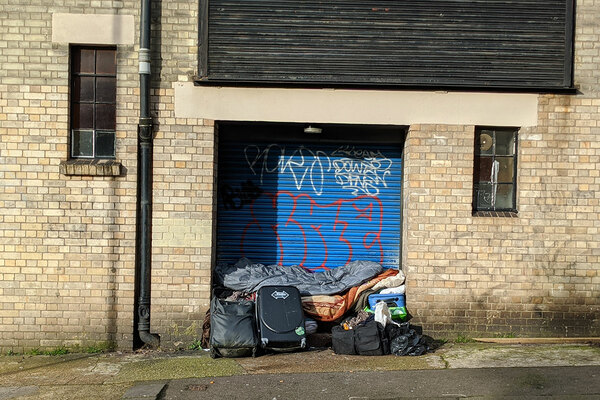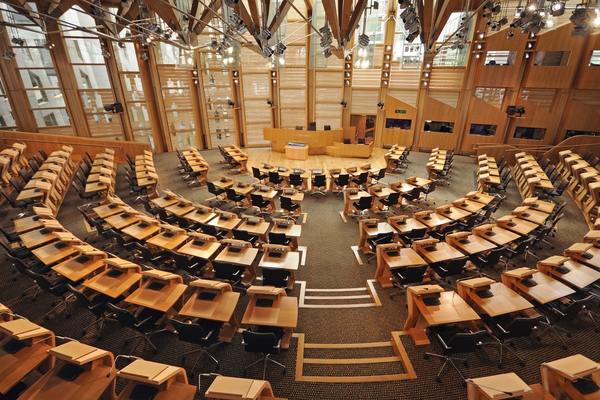You are viewing 1 of your 1 free articles
Rebuilding after coronavirus: what housing wants from government
As lockdown measures begin to ease, minds are turning to how the UK will recover from the economic impacts of the coronavirus pandemic. Inside Housing examines what the sector will want from the government to help it through the difficult times ahead. Pictures by Getty
Development
Supporting affordable housebuilding is an excellent way to help steer the economy through the battering imposed by coronavirus. That is the message the housing sector will want the government to swallow.
The G15 group of large London housing associations has backed a ‘Homes for Heroes’ campaign, which calls for 100,000 homes to be made available over the next five years for key workers who have risked their safety to keep the country going during the pandemic.
The proposals include an “initial burst” of thousands of homes within months by matching government funding with housing association resources to make completed homes and those under construction available on a low-cost basis for key workers. The majority of these homes will be factory built.
In London, where housebuilding schemes were carrying high levels of risk before the crisis due to widespread concerns about high-rise safety and a faltering housing market, a taskforce established by mayor Sadiq Khan’s team has already been discussing how ‘forward funding’ affordable rented homes with government grant could help ensure large projects are not delayed or scrapped.
From a council perspective, there are a number of “quick interventions” the government could make to support development, Hackney mayor Philip Glanville tells Inside Housing. This includes allowing local authorities to keep 100% of Right to Buy receipts and abolishing the time limit in which they must be spent before funds are returned to central government.
Mr Glanville also champions the idea of a housing market package through which councils and housing associations would be given support to buy up empty new builds. “Obviously it’s a lot quicker than building, it could be done sensibly and also it helps developers sell,” he explains.
But early signs from the government could give the sector cause for concern.
in a bid to support housebuilding during the crisis. This may be a signal that ministers will lean towards prioritising market housing, with affordable homes potentially being sidelined.
Homelessness
Homelessness and evictions
The situation on homelessness is currently at a crossroads – in several ways.
First, rough sleeping. With support from central government, councils were able to offer a huge number of rough sleepers somewhere indoors to sleep. The question is now turning to what to do next.
Dame Louise Casey is chairing a taskforce on the next phase of the response, but as details are yet to be made clear, local authorities are getting nervous.
The Greater Manchester Combined Authority, which has a huge rough sleeper population, has written to the government asking for clarity and said it has been told to “draw a line” under the provision of short-term accommodation, with funding also set to go. Since no obvious replacement scheme is yet in place, there are fears that people currently housed in hotels could return to the streets.
Charity St Mungo’s has taken the initiative with a campaign calling for financial support for local authorities to ensure no one is turned out of temporary accommodation without a suitable alternative home to go to.
Meanwhile, the National Housing Federation has written to Dame Louise asking for a government commitment that no one will end up rough sleeping again.
There is also a future homelessness crisis brewing: a ban on evictions is currently set to come to an end on 25 June.
The government has indicated that it plans to introduce a ‘pre-action protocol’ to require landlords to discuss an alternative to eviction for residents with rent arrears due to the coronavirus crisis – but experts warn this would leave many vulnerable.
The call from Shelter is for an extension of the ban, combined with some major changes to the welfare system – including increasing benefits to cover average private rents. It described the current government proposal as “basically a nice idea with no teeth”.
Landlords would point out that a decision must be made on anti-social behaviour evictions if the ban is to be extended.
Devolved nations
Holyrood, where Scottish parliament is based
As the UK gradually takes steps to reopen its economy following the lockdown, the differing approaches taken by politicians across the nations could be significant.
That much already became clear last week, when Westminster reignited the housing market for England while a moratorium remained in place elsewhere.
It did not take long for the Royal Institution of Chartered Surveyors to lead demands for the Scottish, Welsh and Northern Irish governments to set out their own plans to restart the market. Similarly, developer trade body Homes for Scotland has written to Scottish first minister Nicola Sturgeon asking her to allow construction work to resume as it has in England.
For social landlords, it is important that ministers in Holyrood stick to their target of building 50,000 affordable homes between 2016 and 2021, says Sally Thomas, chief executive of the Scottish Federation of Housing Associations.
While the sector supports the construction ban, it wants assurance that building affordable housing will be “at the heart of Scotland’s recovery from coronavirus” in the form of a long-term funding programme, Ms Thomas adds.
In Wales, where development has continued, the sector echoes that call to be recognised as a key plank of the economic rebound. Investing in housing “creates local jobs, training and business opportunities across the supply chain”, argues Clarissa Corbisiero, deputy chief executive of Community Housing Cymru.
“To do this, we need the Welsh government to prioritise capital investment for social housing and offer support at national and local levels to ensure that suitable land is brought forward for development.”
Top of the Northern Irish sector’s list is confirmation of how much funding will be available through the Social Housing Development Programme for the current financial year. “We appreciate that the Department for Communities is dealing with an unprecedented pandemic,” says Ben Collins, chief executive of the Northern Ireland Federation of Housing Associations.
“However we need to know what funding is available to plan and deliver much-needed new homes.”
More on coronavirus
To see all our coronavirus coverage to date – including the latest news, advice to providers, comment and analysis – use the link below.
Sign up for our daily newsletter
Already have an account? Click here to manage your newsletters














